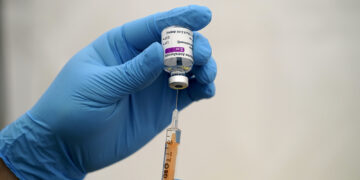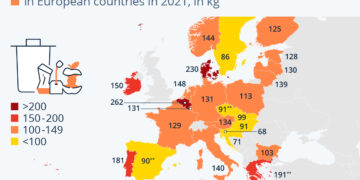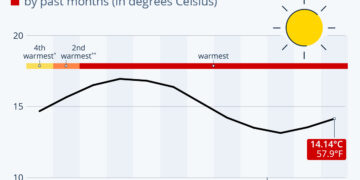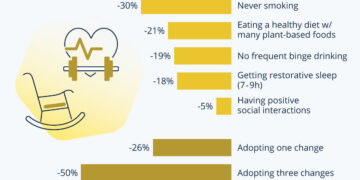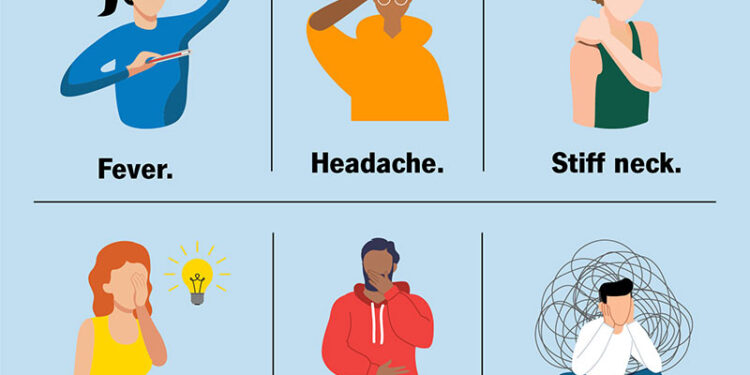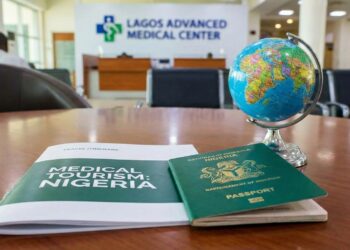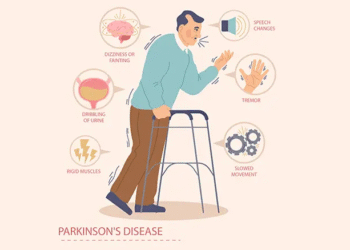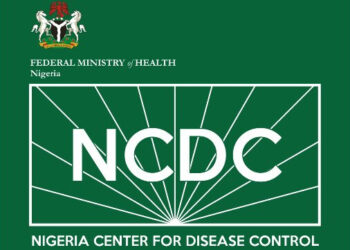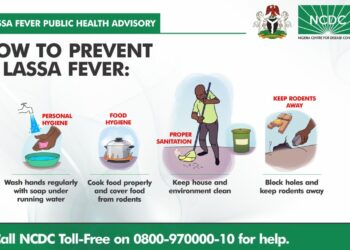Last Month, residents of Nafada Local Government Area in Gombe State found themselves gripped by fear and uncertainty as a mysterious illness swept through their community, leaving a trail of devastation in its wake.
Eyewitnesses who spoke to our correspondent said the alarming symptoms, included severe headaches, stiffness of the legs and neck, and abdominal pain, with the disease predominantly afflicting young people in their twenties.
Babayo Nasiru, a distraught resident, recounts the tragic tale of a young man eagerly preparing for his wedding, only to fall victim to the illness.
Similarly, Maryam Aminu shares the harrowing experience of a girl in her neighborhood who endured multiple hospitalisations due to the relentless grip of the disease.
In response to the outbreak, Babayo Nasiru said he had taken drastic measures to protect his family, implementing strict movement restrictions and keeping his children out of school.
His palpable fear underscores the gravity of the situation, as the community grapples with an unprecedented health crisis.
While some residents have noticed a slight decrease in new cases recently, concerns persist. Mohammed Madaki and Maryam Babayo urge government intervention to curb the spread of the disease and provide vital support to affected communities.
Confirming the presence of the illness, the Commissioner of Health, Dr. Habu Dahiru, revealed that samples taken from Nafada and Funakaye LGAs have tested positive for meningitis.
However, He clarified that an official outbreak declaration has not been made, as the state has yet to meet the threshold for a meningitis outbreak.
Dr. Habu Dahiru issued an advisory, urging residents to report any suspected disease to the nearest health facility immediately for prompt action and intervention.
Responding to questions from journalists on the reported disease, Dr. Dahiru also cautioned the public against spreading rumours and emphasised the importance of adhering to standard guidelines for reporting public health incidents.
He clarified that following reports of a disease in Nafada Local Government, the government swiftly investigated the situation, and the symptoms observed suggested Cerebrospinal Meningitis (CSM).
He said proactive measures had been taken since onset to activate an Emergency Operation Centre (EOC) for suspected CSM cases and to rule out Lassa fever .
Dr. Dahiru highlighted that the activated EOC had deployed the state rapid response team to support local government response teams, adding that their efforts include reaching out to the caretakers of the affected local government, engaging the director of Public Health, and collaborating with emirates and religious leaders to sensitize community members on precautionary measures through religious platforms.
He urged people to remain vigilant and cooperative in the collective effort to safeguard community health and well-being.
Nafada Local Government Area, bordering Gombe and Yobe States, remains at the centre of attention as health authorities continue to monitor and respond to the evolving situation.
This comes in the wake of confirmed cases of Meningitis in Yobe State, heightening concerns about the spread of infectious diseases in the region.
In the meantime, Governor Inuwa Yahaya has ordered free treatment for affected individuals at the General Hospital Nafada, underscoring the government’s commitment to combating the disease.
Nevertheless, there is a pressing need for heightened awareness campaigns to educate the public on preventive measures and promote early detection
EPIDEMIOLOGY OF MENINGITIS
It is important to note that meningitis is a serious infection of the meninges, the membranes covering the brain and spinal cord. It is a devastating disease and remains a major public health challenge. The disease can be caused by many different pathogens including bacteria, fungi or viruses, but the highest global burden is seen with bacterial meningitis.
Meningococcal meningitis is transmitted from person to person through droplets of respiratory and throat secretions, usually by asymptomatic carriers. Close, prolonged contact with an infected person, or living with a carrier, facilitate the spread of the disease. The average incubation period is four days, but can range between two and 10 days.
According to the Nigeria Centre for Disease Control, (NCDC), Cerebrospinal Meningitis Public Health Advisory, Cerebrospinal Meningitis (CSM) occurs when there is an acute inflammation of the covering of the brain and the spinal cord. It is an epidemic-prone disease, with cases reported all year round in Nigeria.
However, weather conditions like the dry season which comes with dust, winds, cold nights, and frequent upper respiratory tract infections, increase the risk of infection, especially with crowding and poor ventilation.
The highest burden of CSM in Nigeria occurs in the “Meningitis Belt” which includes all 19 states in the Northern region, the Federal Capital Territory (FCT), and some southern states, such as Bayelsa, Cross River, Delta, Ekiti, Ogun, Ondo, Osun).
HEALTH ADVICE TO THE PUBLIC
To protect oneself and loved ones from getting meningitis, the
Public is advised to:
- Vaccinate themselves and family, as the appropriate requirement
for protect against meningitis. - Avoid close and prolonged contact with a confirmed case of CSM including relatives.
- Avoid overcrowding in households.
- Avoid smoking.
- Practice proper respiratory hygiene when coughing or sneezing.
- Discourage indoor air pollution, such as indoor cooking over open flames.
- Practice good personal and hand hygiene by frequently washing hands with soap under running water or using hand sanitizers when necessary.
- Always keep your environment clean.
- Visit the nearest health facility immediately if you notice any of the signs and symptoms associated with CSM mentioned earlier or call the State Ministry of Health hotline or 6232 (NCDC toll-free line).
- Avoid self-medication to prevent antimicrobial resistance and ensure proper diagnosis and early treatment.
ADVICE TO HEALTHCARE WORKERS
- Healthcare workers are advised always to practice standard infection prevention and control practices: i.e., wear gloves and other appropriate personal protective equipment while handling patients or providing care to an ill patient.
- Healthcare workers should maintain a high index of suspicion for CSM, that is., be vigilant and consider a diagnosis of CSM when seeing patients presenting with suggestive symptoms including acute febrile illness at this time.
- Healthcare providers should report all suspected cases of CSM to their local government Disease Surveillance and Notification Officer for immediate access to healthcare. This is essential because early identification and treatment of cases are more effective and can save lives.

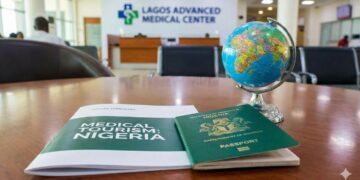
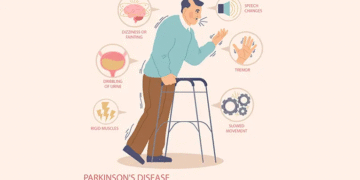

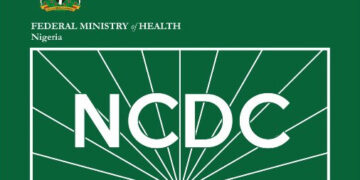
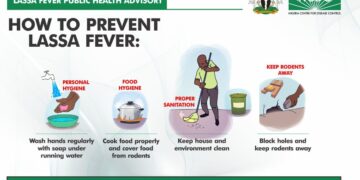

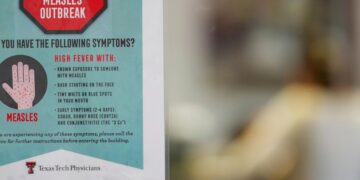

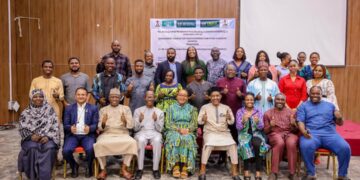


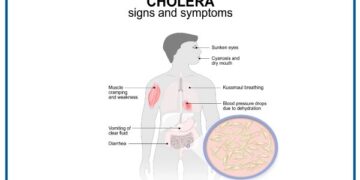
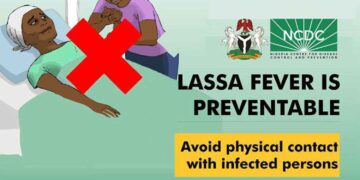
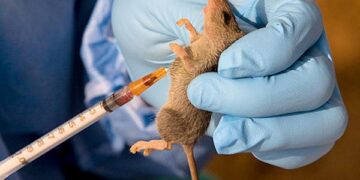



![Antimicrobial Resistance [AMR] in Hausa](https://healthtoday.com.ng/wp-content/uploads/2024/02/antimicrobial-resistance-AMR--360x180.jpeg)



